Introduction
This guide to Cavalier King Charles care ensures your pet lives a happy, healthy life.
- Their small size and friendly disposition make them great for families and individuals
- Regular grooming is essential to maintain their coat's health and appearance
- These dogs are prone to specific health issues that need careful attention and care
- Early socialization and training are crucial for raising a well-behaved and happy pet
- Understanding their needs ensures a happy, healthy life together with your beloved pet
1. Appearance and Grooming
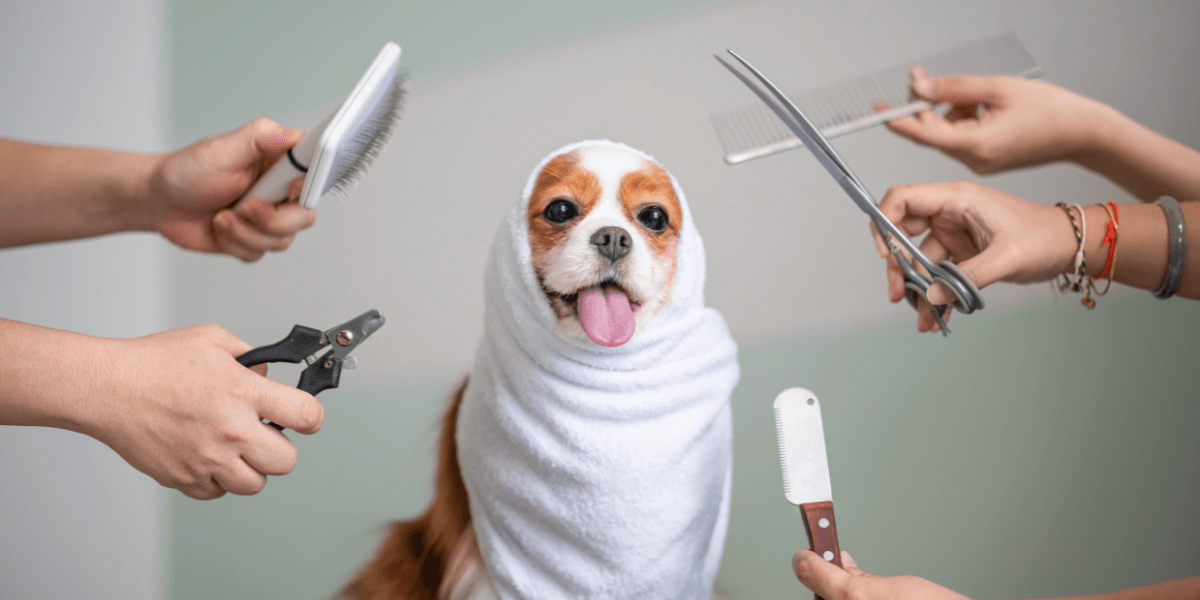
Cavalier King Charles Spaniels have a luxurious coat that requires regular grooming.
- Coat maintenance: Daily brushing prevents matting and reduces shedding
- Bathing needs: Bathe every 4-6 weeks to keep the coat clean, and in good condition
- Ear care: Check and clean ears weekly to prevent infections and discomfort
- Nail trimming: Trim nails every 3-4 weeks to avoid overgrowth and injury
- Teeth care: Brush their teeth daily to prevent dental diseases and bad breath buildup
- Eye cleaning: Regularly wipe eyes to prevent tear stains and irritation or infections
2. Health Concerns
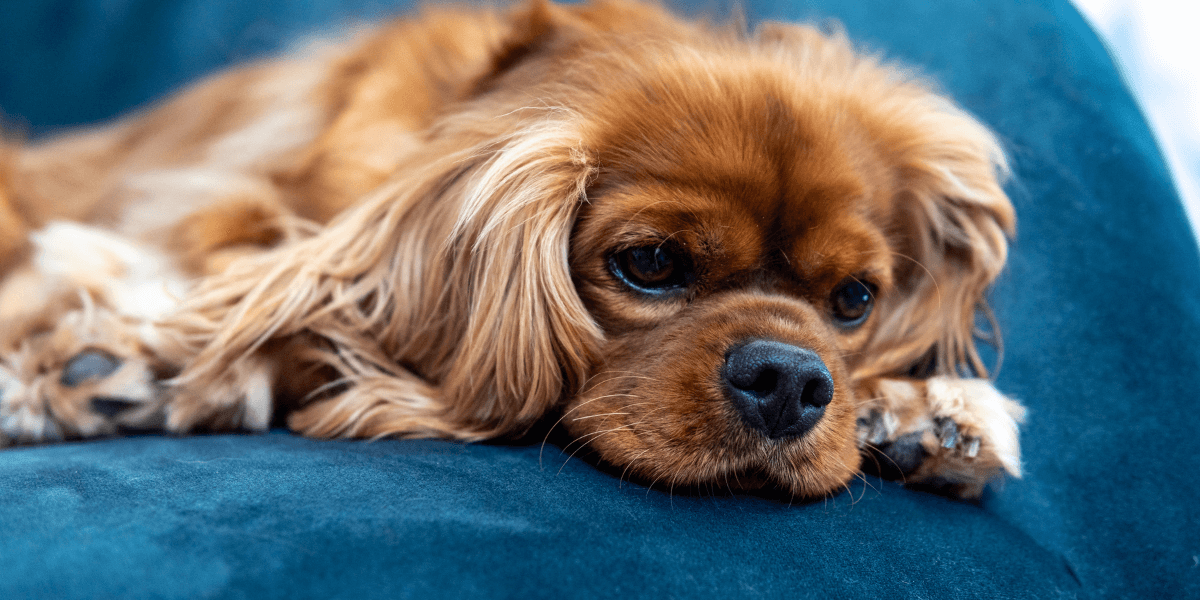
This guide to Cavalier King Charles Spaniels covers essential health issues to monitor.
- Mitral valve disease: Regular vet check-ups can help detect and manage this condition
- Syringomyelia: Watch for symptoms like neck pain and consult a vet for diagnosis
- Hip dysplasia: Provide joint supplements and maintain a healthy weight to reduce strain
- Patellar luxation: Ensure they avoid jumping from heights to prevent knee injuries
- Obesity: Control portions and provide regular exercise to prevent weight gain
- Allergies: Monitor for skin issues and consult a vet for allergy management
3. Nutrition and Diet
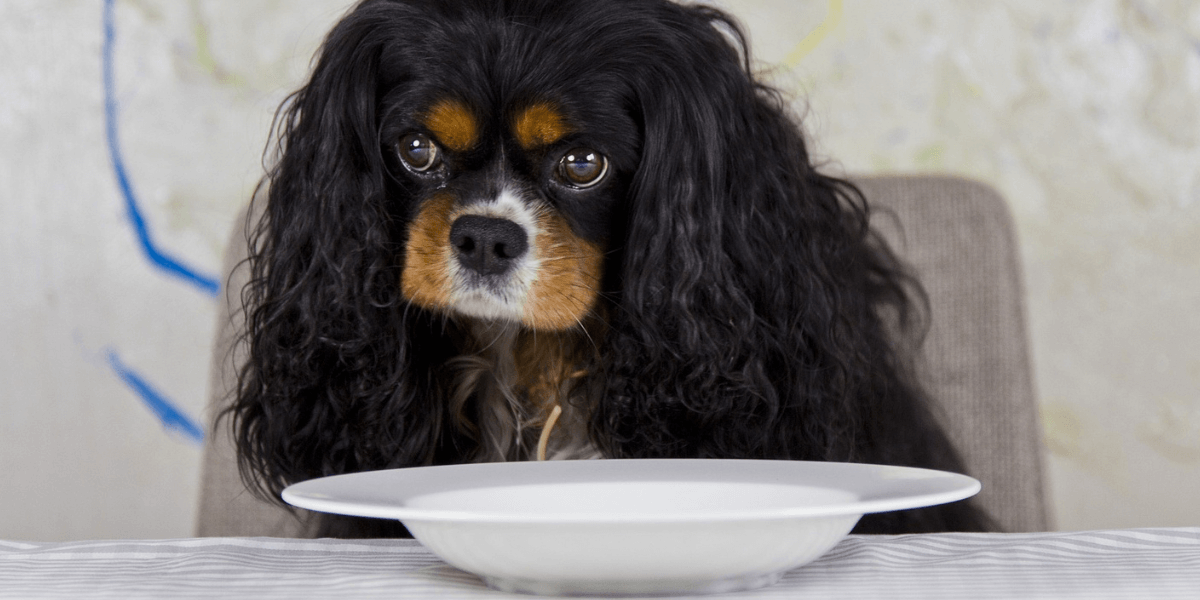
Proper nutrition is essential to keep your Cavalier King Charles healthy and vibrant.
- High-quality food: Opt for a diet with real meat and vegetables as main ingredients
- Portion control: Follow feeding guidelines carefully to prevent overfeeding and obesity
- Treats in moderation: Offer treats sparingly to avoid unnecessary calorie intake
- Freshwater: Provide clean, fresh water at all times to keep them hydrated
- Avoid table scraps: Human food can lead to digestive issues and unhealthy weight gain
- Supplements: Consider joint supplements for older dogs to support mobility
4. Exercise and Activity
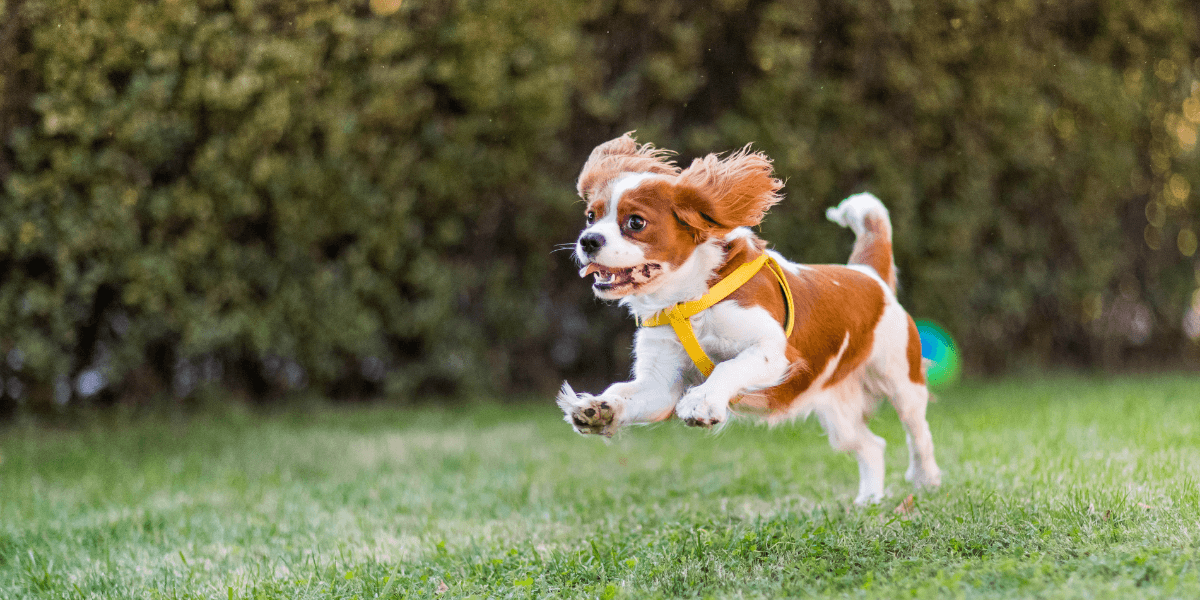
Cavalier King Charles Spaniels needs regular exercise for physical and mental health.
- Daily walks: Provide at least two short walks daily to keep them active and engaged
- Playtime: Engage in playtime with toys to stimulate their mind and strengthen your bond
- Indoor activities: Use interactive toys and puzzles to keep them entertained indoors
- Socialization: Arrange playdates with other dogs to improve their social skills
- Obedience training: Use training to reinforce good behavior and offer mental stimulation
- Avoid overexertion: Monitor energy levels and avoid intense exercise in hot weather
Discover training techniques to keep your Cavalier active and engaged with these training tips for Great Danes.
5. Temperament and Behavior
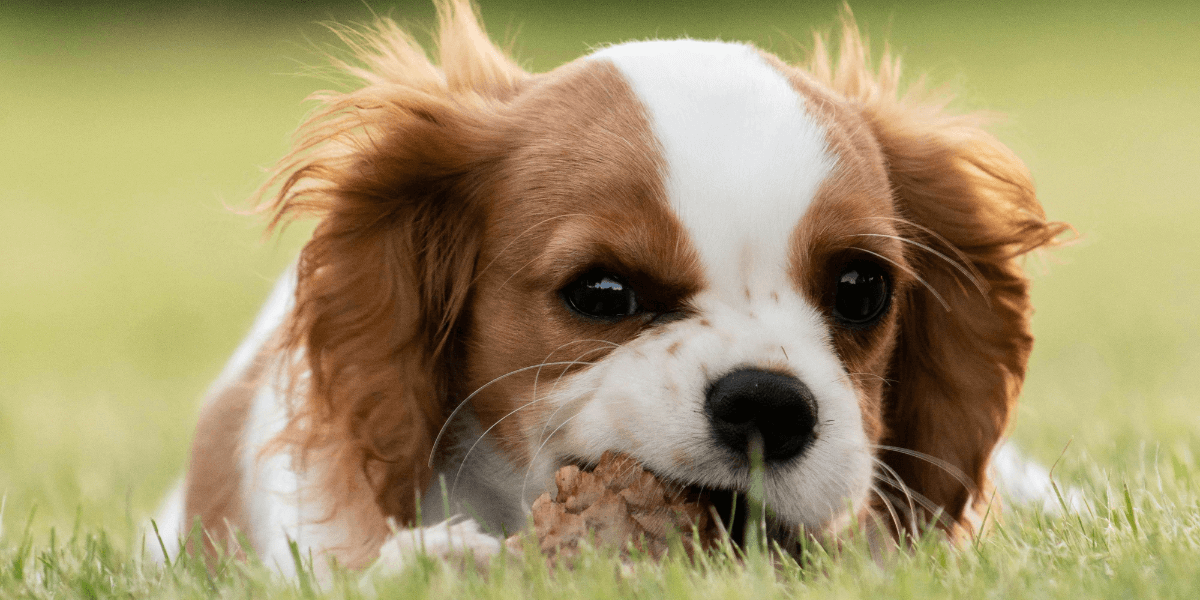
These dogs are known for their affectionate, gentle, and friendly nature.
- Social with family: Thrives on companionship and enjoys being part of family activities
- Good with children: Their gentle nature makes them excellent companions for children
- Friendly with strangers: They generally get along well with new people and pets
- Separation anxiety: They may feel anxious if alone for too long; ensure regular company
- Responsive to training: They respond well to positive reinforcement during training
- Barking: They are not excessive barkers but will alert you to unusual occurrences
6. Training Tips
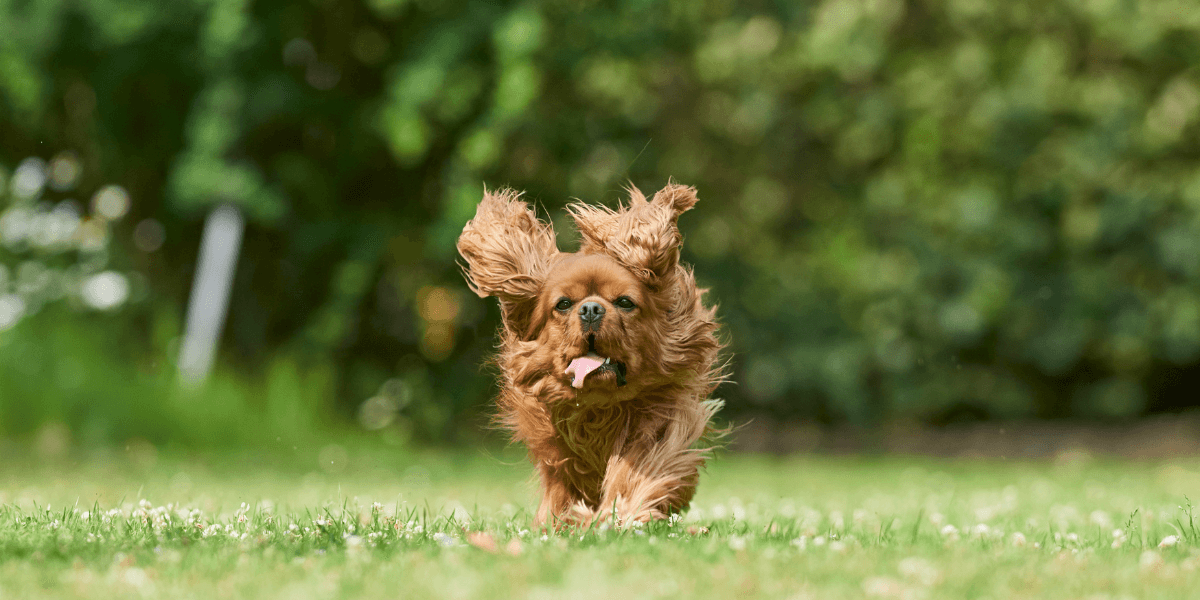
Early training is crucial for a well-behaved Cavalier King Charles Spaniel.
- Start early: This guide to Cavalier King Charles training recommends starting as a puppy
- Positive reinforcement: Use treats and praise to encourage good behavior during training
- Consistency: Be consistent with commands and routines to reinforce learning
- House training: Establish a regular potty schedule to prevent accidents
- Leash training: Teach them to walk on a leash without pulling to make walks enjoyable
- Crate training: Introduce crate training for a safe space and easier housebreaking
Learn why orthopedic beds are essential for proper rest with the best orthopedic beds for Great Danes.
7. Living with a Cavalier King Charles Spaniel

Understanding their needs ensures a happy life with your Cavalier King Charles Spaniel.
- Space needs: They adapt to apartments or houses as long as they get enough exercise
- Companionship: They need plenty of attention and companionship to thrive emotionally
- Safety: Provide a secure environment, free from hazards like small objects or open doors
- Traveling: They travel well but need to stay comfortable and secure during trips
- Time commitment: They require time for grooming, exercise, and attention daily
- Vet visits: Vet visits are vital for vaccines, health checks, and early issue detection
Explore how Cavaliers thrive as family pets in comparison to Bernese Mountain Dogs' family life.
FAQs
1. What is the lifespan of a Cavalier King Charles Spaniel?
- The average lifespan is 12-15 years, with proper care extending their life expectancy
2. Are Cavalier King Charles Spaniels good for first-time dog owners?
- Yes, they are gentle, friendly, and easy to train, making them great for beginners
3. Do they get along with other pets?
- Yes, they are typically friendly and can get along well with other dogs and cats
4. How much exercise do they need daily?
- They need moderate exercise, including two short walks and some playtime every day
5. Are they prone to any specific health problems?
- Yes, they are prone to heart issues, syringomyelia, and hip dysplasia, among others
6. What type of grooming do they require?
- Regular brushing, ear cleaning, nail trimming, and occasional bathing are necessary
7. Can they live in an apartment?
- Yes, they adapt well to apartment living if they receive enough exercise and attention
Conclusion
- Cavalier King Charles Spaniels are loving companions with a gentle and friendly nature
- Regular grooming, proper nutrition, and exercise are essential to their well-being
- Early socialization and training ensure they grow into well-mannered and happy dogs
- Regular vet visits are important to monitor and maintain their health
- Understanding and meeting their needs will lead to a fulfilling and joyful life together
- This guide to Cavalier King Charles Spaniels helps you raise a well-mannered, happy dog
References
For more info on The Ultimate Guide to Cavalier King Charles Spaniel, check out:



